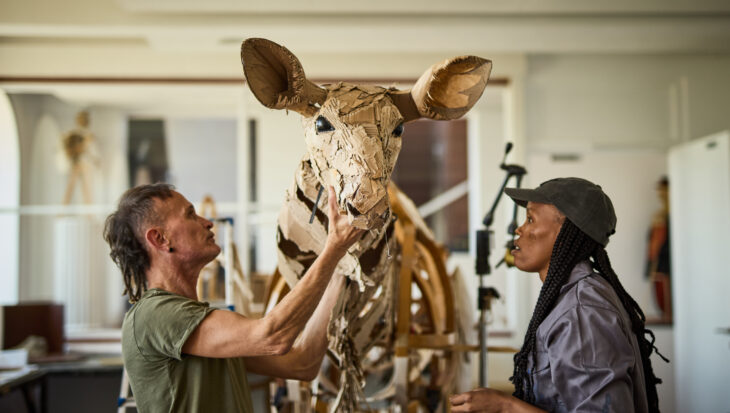‘The Herds’ will be arriving in London this Friday!
Have you heard? A breathtaking arts initiative, ‘The Herds’ will be arriving in London this Friday.
Posted 27 Jun 2025

Posted on the 23rd August 2017
An investigation into a Warwickshire game farm, launched by national campaign group, Animal Aid, has uncovered a disturbing number of welfare concerns.
Undercover filming carried out at Heart of England Farms Ltd during June and July of this year, revealed partridges and pheasants confined in battery-style cages, and that many of the birds were stressed and in extremely poor condition. Several of the welfare issues resulted from practices that were clear breaches of the government’s Code of Practice for rearing game birds.
Animal Aid has written to the Animal and Plant Health Agency (APHA) demanding immediate action. Amongst our concerns are:
In addition, Animal Aid’s investigator filmed a farm vehicle dumping what appeared to be bags of waste composed of litter from a rearing shed, into a field. Amongst the litter were the corpses of young birds. Cows were filmed grazing on top of the pile.
Says Animal Aid Campaign Manager, Fiona Pereira:
‘What we filmed at the farm were practices that breach the industry’s Code, but it’s important to realise that, unbelievably, it is legal to incarcerate semi-wild birds for months in metal cages that cause incredible stress and suffering.
There are tens of thousands of these breeding birds in industrial farms all across the country, being used to produce eggs that will become the next generation of live targets for shooters. It is abominable that such suffering – for so-called sport – is permitted. We want to see an end to the killing of animals for sport, but in the immediate future, we want an end to these battery-style cages used to confine the breeding birds.’
1) Breaches of the Code of Practice
2) Welfare concerns:
Animal Aid’s investigator also discovered cows grazing on a pile of waste, which included dead bird carcasses. On a later date, a vehicle from the game farm was filmed dumping more waste on the pile, which was still being accessed by cows. Again, dead bird carcasses were found on the pile.
This offence is not covered specifically by the Code of Practice for the Welfare of Gamebirds Reared for Sporting Purposes, but is referenced in that document’s Annex, regarding the Animal By-Products Regulations 2005:
3) What was filmed:
4) Reporting our findings:
Animal Aid reported its concerns to the Animal and Plant Health Agency (APHA) and to Lord Gardiner of Kimble, Parliamentary Under Secretary of State for Rural Affairs on 25 July (we are waiting for a response).
In 2015, after Animal Aid made a complaint about barren cages in use at another game farm, we received a letter from APHA which clearly stated that ‘Game farms in England and Wales do not have a routine inspection programme’ and that ‘Any inspections carried out by APHA are in response to allegations of poor welfare …’. Further, in a letter to Roger Godsiff on 27 February 2016, Minister George Eustice, stated ‘I am not convinced it is necessary for APHA inspectors to regularly visit game farms up and down the country to check compliance with the code. The inspections that have taken place in response to welfare concerns have shown that for the most part game farms are compliant with the code. Where there has been conflict, there has been a justifiable reason and action is being taken to rectify the situation.’
On 30 June 2015, Mr Eustice stated in response to a Parliamentary Question that four game farms had been inspected as a result of welfare concerns since June 2014.
Have you heard? A breathtaking arts initiative, ‘The Herds’ will be arriving in London this Friday.
Posted 27 Jun 2025

As the greyhound racing industry releases its annual data on the number of dogs’ deaths, a raft of well-known names - alongside their canine friends - has called upon the Government to end greyhound racing....
Posted 26 Jun 2025
